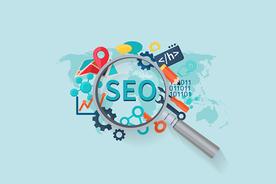
In the dynamic landscape of the health and fitness retail and e-commerce industry, businesses are constantly seeking ways to improve user experience while maintaining a competitive edge. One crucial strategy that has gained significant traction is the use of Search Engine Optimization (SEO) tools. These tools are designed to enhance website visibility on search engines, drive organic traffic, and ultimately boost conversions. However, the impact of SEO tools extends far beyond just improving search engine rankings; they have a profound effect on the overall user experience within the health and fitness e-commerce sector.
The role of SEO tools in shaping user experience can be broken down into several key areas:
1、Website Navigation and Usability:
SEO tools help websites become more user-friendly by emphasizing the importance of site structure and clear navigation. By optimizing site architecture and internal linking strategies, users can easily find what they're looking for, which leads to a more enjoyable browsing experience. This is particularly important in the health and fitness industry where customers may be searching for specific products or information related to their wellness needs.
2、Page Load Speed:
One of the critical factors in user experience is page load speed, and SEO tools allow businesses to identify performance issues that could be slowing down their website. Google's PageSpeed Insights, for example, provides actionable recommendations on how to optimize images, reduce server response time, and minimize CSS and JavaScript. Faster page speeds lead to lower bounce rates and higher satisfaction among users, who expect instant results in the digital age.
3、Mobile Optimization:
With more consumers using mobile devices to shop online, mobile optimization has become a vital aspect of SEO. Tools such as Google's Mobile-Friendly Test help retailers ensure their websites are accessible and easy to navigate on smartphones and tablets. A mobile-optimized website ensures that users have a seamless shopping experience regardless of the device they use.
4、Content Relevance and Quality:
SEO tools enable businesses to produce content that is not only search engine-friendly but also engaging and informative for users. Keyword research tools like SEMrush and Ahrefs help identify topics and phrases that potential customers are searching for, allowing businesses to create content that meets users' needs. High-quality, relevant content builds trust and credibility with users, encouraging them to make purchases and return to the site for further engagement.
5、Personalization and Customization:
As users increasingly seek personalized experiences, SEO tools can aid in data collection and analysis, helping retailers understand their audience's preferences. Tools like Google Analytics provide insights into user behavior, enabling businesses to tailor their product offerings, marketing messages, and even website design to better suit their target market. Personalization enhances the user experience by making each visitor feel understood and valued.
6、Voice Search Optimization:
Voice search is becoming increasingly popular, especially in the health and fitness industry, where users might ask voice assistants for exercise tips or nutritional advice. SEO tools can help websites adapt to this trend by optimizing content for conversational keywords and natural language queries. By doing so, websites can provide a more intuitive and satisfying experience for those utilizing voice search.
7、Security and Trust:
User experience is closely tied to perceived security and trustworthiness. SEO tools often emphasize the importance of HTTPS and other security protocols, which not only protect user data but also contribute to higher search engine rankings. A secure website reassures users that their personal and financial information is safe, fostering a positive shopping experience.
8、Continuous Improvement:
SEO is an ongoing process rather than a one-time fix. SEO tools offer continuous monitoring and analysis capabilities, allowing businesses to track user interactions and adapt their strategies accordingly. This agility ensures that the user experience remains fresh and responsive to changing customer expectations and search engine algorithms.
In conclusion, SEO tools have a transformative effect on the user experience within the health and fitness e-commerce industry. By focusing on website usability, speed, mobile optimization, content quality, personalization, voice search readiness, security, and continuous improvement, these tools enable businesses to create a comprehensive and satisfying online shopping environment. As the competition in the e-commerce space continues to grow, leveraging SEO tools to enhance user experience will be crucial for businesses aiming to succeed in the health and fitness retail sector.
评论列表 (0条)